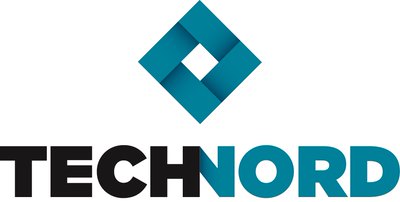

Technord

Hainaut, Belgium
June 2021
Engineering
Service with Minor Environmental Footprint
Belgium,
Chile,
Denmark,
France,
Luxembourg,
Netherlands The,
Romania,
Singapore,
Switzerland
Le groupe industriel Technord, fort de 370 personnes (100 % familial) est spécialisé dans l’intégration de projets industriels en électricité (Basse, Moyenne et Haute Tension, Puissance Connectée), Automation et Process Control, Informatique Industrielle et MES/MoM, et les Technologies de l’Industrie 4.0 (Internet des Objets-IoT, Data Science & Analytics, Jumeau Numérique, Intelligence Artificielle) pour garantir une productivité et une flexibilité optimales (et même une prédictivité) des processus industriels de ses clients. Technord accompagne ses clients sur toute la durée du cycle de vie du projet, depuis les études détaillées jusqu’au commissioning (y compris à l’étranger), en leur proposant un service Hotline dédié 24h/24 si nécessaire.
Overall B Impact Score
Governance 22.3
Governance evaluates a company's overall mission, engagement around its social/environmental impact, ethics, and transparency. This section also evaluates the ability of a company to protect their mission and formally consider stakeholders in decision making through their corporate structure (e.g. benefit corporation) or corporate governing documents.
What is this? A company with an Impact Business Model is intentionally designed to create a specific positive outcome for one of its stakeholders - such as workers, community, environment, or customers.
Workers 39.0
Workers evaluates a company’s contributions to its employees’ financial security, health & safety, wellness, career development, and engagement & satisfaction. In addition, this section recognizes business models designed to benefit workers, such as companies that are at least 40% owned by non-executive employees and those that have workforce development programs to support individuals with barriers to employment.
What is this? A company with an Impact Business Model is intentionally designed to create a specific positive outcome for one of its stakeholders - such as workers, community, environment, or customers.
Community 20.5
Community evaluates a company’s engagement with and impact on the communities in which it operates, hires from, and sources from. Topics include diversity, equity & inclusion, economic impact, civic engagement, charitable giving, and supply chain management. In addition, this section recognizes business models that are designed to address specific community-oriented problems, such as poverty alleviation through fair trade sourcing or distribution via microenterprises, producer cooperative models, locally focused economic development, and formal charitable giving commitments.
Environment 13.3
Environment evaluates a company’s overall environmental management practices as well as its impact on the air, climate, water, land, and biodiversity. This includes the direct impact of a company’s operations and, when applicable its supply chain and distribution channels. This section also recognizes companies with environmentally innovative production processes and those that sell products or services that have a positive environmental impact. Some examples might include products and services that create renewable energy, reduce consumption or waste, conserve land or wildlife, provide less toxic alternatives to the market, or educate people about environmental problems.
Customers 15.4
Customers evaluates a company’s stewardship of its customers through the quality of its products and services, ethical marketing, data privacy and security, and feedback channels. In addition, this section recognizes products or services that are designed to address a particular social problem for or through its customers, such as health or educational products, arts & media products, serving underserved customers/clients, and services that improve the social impact of other businesses or organizations.
What is this? A company with an Impact Business Model is intentionally designed to create a specific positive outcome for one of its stakeholders - such as workers, community, environment, or customers.